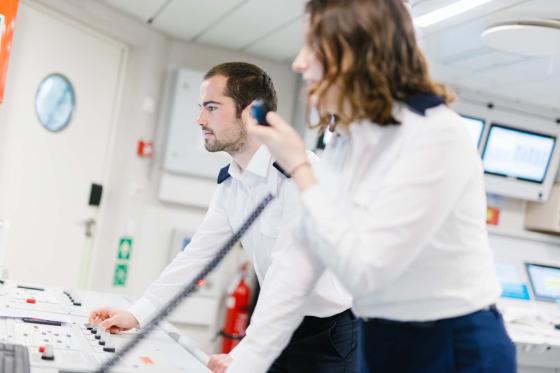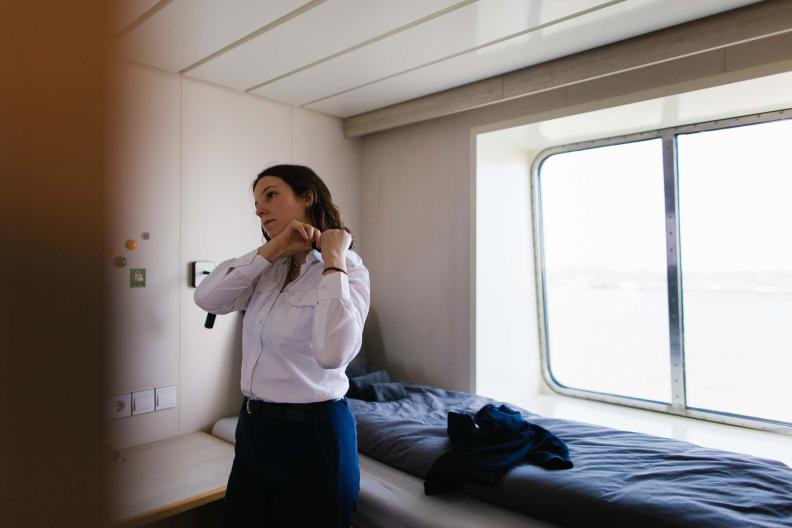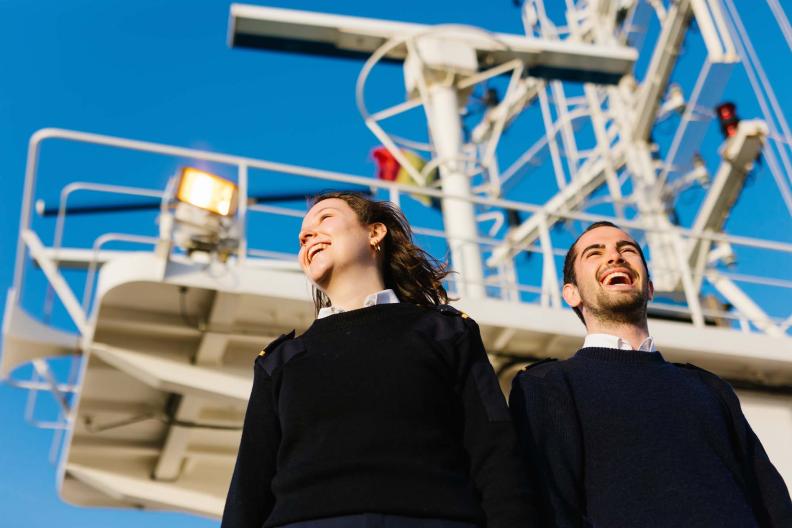Nautical Sciences
From integral calculations to hydrography and from electricity to management techniques and maritime law. Over the next three to four years, we will fire a very broad spectrum of courses at you. Ready? set. go!

Nautical Sciences
An overview of your study
Those who choose Nautical Sciences initially want to sail as an officer (and later a captain) on the bridge of a commercial ship. These officers are officers aboard merchant ships responsible for the navigation, operation of the ship, security and cargo, and communications with other ships and with the. They ensure that a sea voyage is efficient and safe and deliver their cargo to all corners of the world. They are also more than welcome in the dredging world. Later in their career, our graduates can opt for a job as a pilot, as a manager in a port or in one of the many maritime companies ashore.
Nautical science students learn everything about on-board instruments, nautical science, charting and manoeuvring, as well as about the different types of cargo and how to load and unload them on board. The transport of goods involves many documents and inspections and must be acted upon in accordance with international treaties. Everyone receives extensive safety training, so that students know what to do in emergency situations such as fire, man overboard or the sinking of the ship. This is done not only through theoretical subjects, but also through extensive skills training throughout the course, in the workshop and on simulators.
The students analyse the latest developments, such as navigation in ice areas that are now being released due to global warming, or the use of alternative fuels to replace traditional fuels. To this end, the curriculum is based on a broad scientific basis and knowledge of international maritime evolutions. All this requires a broad base of mathematics, physics and chemistry, which is built up in the early years. Finally, the Nautical Sciences students receive a wide range of backgrounds in economics, maritime law, communication and even conducting innovative research. Finally, a ship is a micro-community, where crew members of different nationalities and cultures live together in a limited area. The students therefore also develop skills to master interpersonal differences with English as the medium of choice.
Hour by hour
Feel like diving a little deeper into your class schedule now or preparing to start? You'll find much more information in the study guide. Feel free to get in touch if you have any questions.
Before you start
The Nautical Sciences program prepares you for a leading role in the maritime sector. This can be done on board a ship, or in the boardroom of a port company.
Mathematics bridging course
This course is intended as an entry-level course in mathematics for first-year students of the Maritime Academy (both for Nautical Sciences and Marine Engineering courses). The aim is to repeat a number of subjects from the mathematics curriculum of secondary education. The knowledge of the subject matter can be tested by means of exercises.
Uniform
Wearing a uniform at school is mandatory. The cost of a complete trousseau (uniform and supplies) is approximately 900 euros. Sometimes second-hand uniforms are offered on the bulletin boards. Students are not required to wear a uniform from the first day of school, but we expect them to do so by 3 November at the latest.
Medical examination
The students must undergo a medical examination, preferably before the start of the study, but certainly before the start of the internships on board. Students who are not medically fit to sail can do an internship as a student on board, but the internship is only recognized as sailing time (necessary for promotions) if they are medically fit to sail on graduation.





